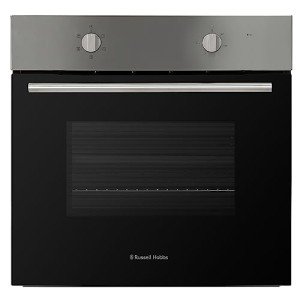How To Explain Integrated Ovens To A 5-Year-Old
The Rise of Integrated Ovens: Revolutionizing Home Cooking
In the modern cooking landscape, integrated ovens have become a pivotal development, changing conventional cooking practices through their trendy design and diverse performance. As house owners pursue both visual appeal and practical utility, integrated ovens have actually ended up being gradually popular in kitchen areas worldwide. This article aims to look into the functions, benefits, and factors to consider of integrated ovens, providing prospective buyers with valuable insights to make informed decisions.
What Are Integrated Ovens?
Integrated ovens are built-in kitchen appliances designed to effortlessly mix into kitchen cabinetry, using a smooth and contemporary look. Unlike standalone ovens, which use up flooring area and can disrupt the visual circulation of a kitchen, integrated ovens are set up within kitchen cabinetry, offering a streamlined look that makes the most of area performance.
Types of Integrated Ovens
Integrated ovens can be categorized into a number of categories based on their features and functionalities:
Type
Description
Single Ovens
A single compartment for baking and cooking tasks.
Double Ovens
Two compartments permitting synchronised cooking at different temperatures.
Steam Ovens
Utilizes steam for cooking, maintaining nutrients and wetness in food.
Convection Ovens
Distributes hot air for even cooking and browning.
Wall Ovens
Built into the wall for easy gain access to, often favored in contemporary kitchens.
Key Features of Integrated Ovens
Aesthetic Appeal: Integrated ovens can match the color and style of kitchen cabinets, developing a cohesive and classy kitchen style.
Area Efficiency: By utilizing vertical area and reducing countertop mess, integrated ovens optimize kitchen layouts, especially in smaller homes.
Advanced Technology: Many integrated ovens come with modern-day features such as digital control panels, wise technology, and numerous cooking functions to boost the cooking experience.
Energy Efficiency: Designed with insulation and effective heating aspects, integrated ovens often consume less energy than traditional models.
Adaptability: Integrated ovens frequently include numerous cooking functions, such as baking, broiling, roasting, and steaming, making them appropriate for a variety of recipes.
Advantages of Integrated Ovens
1. Smooth Integration
Integrated ovens supply an unobtrusive appearance in the kitchen. When picked properly, built in double oven and gas hob packages can end up being a part of the overall design rather than a home appliance that distracts from the aesthetic.
2. Improved Cooking Performance
Numerous integrated ovens are equipped with enhanced cooking innovation, consisting of convection systems that guarantee more even cooking and browning. This feature enhances the general quality of ready meals.
3. Increased Accessibility
With integrated wall ovens, users can avoid flexing down to access the oven, making it much easier to load and dump meals, which is especially helpful for those with movement challenges.
4. Customizable Options
Integrated ovens can be personalized to fit particular kitchen measurements and personal preferences, permitting various installations, sizes, and finishes.
5. Boosted Resale Value
A visually pleasing integrated oven can improve the overall worth of a home, making it an attractive selling point for possible buyers.
Considerations When Choosing an Integrated Oven
While integrated ovens present numerous benefits, there are several elements to think about before buying:
1. Size and Dimensions
- Inspect kitchen measurements: Ensure the integrated oven's dimensions match your available space.
- Consider home appliance clearance: Adequate area for airflow and opening doors is vital.
2. Cooking Capacity
- Single vs. double oven: Assess home cooking requirements. Large families may benefit from double ovens to prepare several meals simultaneously.
3. Source of power
- Electric vs. gas: Determine the preferred cooking source based upon the type of fuel available in the kitchen.
4. Features and Functions
- Evaluate essential functions: Decide on important functions like steam cooking, convection settings, or wise innovation for practical operation.
5. Budget plan Considerations
- Checking out price ranges: Integrated ovens can be found in different cost points. Evaluate your budget and look for appliances that balance quality and price.
FREQUENTLY ASKED QUESTION
1. Can integrated ovens be retrofitted into existing kitchen areas?
Yes, many integrated ovens can be fitted into existing kitchen cabinets. However, it is advisable to seek advice from a professional kitchen designer to ensure a proper fit.
2. How do I preserve an integrated oven?
Regular upkeep consists of cleaning up the oven interior and outside, inspecting seals, and occasionally checking heating components for efficiency.
3. Are integrated ovens energy-efficient?
Usually, integrated ovens are created to be energy-efficient due to their insulation and contemporary heating innovation, possibly lowering energy costs gradually.
4. Can integrated ovens be utilized for baking and roasting?
Most integrated ovens use multiple cooking functions, making them appropriate for baking, roasting, broiling, and other cooking strategies.
5. Is it hard to install an integrated oven?
Installation might need professional help, specifically if electrical or pipes work is required. Do it yourself setup may void the service warranty; hence looking for aid from experienced installers is advised.
Integrated ovens represent a considerable advancement in modern-day kitchen style and functionality, combining design with efficiency. Their seamless combination and advanced abilities make them an enticing option for homeowners looking for to raise their cooking experience while improving their kitchen's visual. With different types and features offered, prospective buyers need to carefully consider their unique requirements, making sure that they pick the ideal integrated oven for their cooking requirements. In a time where aesthetic appeals and performance are similarly vital, integrated ovens certainly stand as a commendable option within the world of home cooking.
